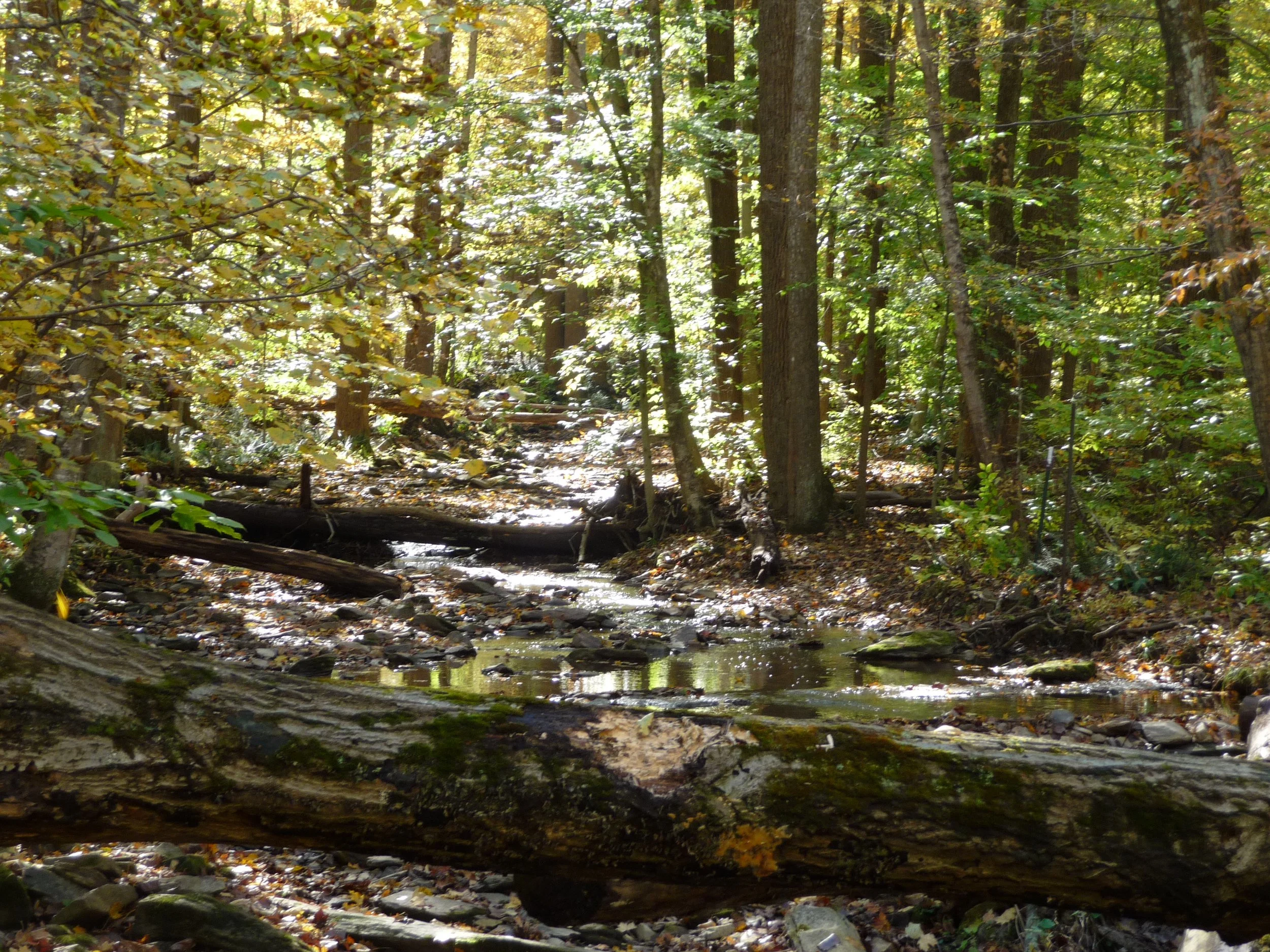Farming and Industry
When English immigrants came to Maryland their interest was on profiting from the new interest in tobacco and they hoped that the area would be beneficial as it seemed to be in Virginia. However, as they migrated more to the central part of the colony they met industrious German immigrants who had come into the area through central Pennsylvania as part of the German migration from the Palatinate in a search for religious freedom. The Germans realized that the land was good for agriculture and planted grain crops like wheat, barley, corn, and flax. Potatoes were also a practical crop. As part of the Monocacy settlement there was a requirement to plant apple trees and that quickly took off as well because apples had many uses and the lime-based soil was beneficial for fruit production. As time passed, peach orchards also were planted. Because of the abundance of grains and fruit, grist mills and cider mills were quickly established.
The types of trees in abundance on the mountain were chestnut, poplar, hickory, maple, and oak and of fine quality, all useful for log cabins, furniture, and wagons. Sawmills like Ignatius Brown’s on Owen’s Creek were essential, and the combined lumbering and sawmill industry was highly lucrative.
The following description is printed in the US Department of the Interior, National Park Service, National Registration of Historic Places, OMB No. 1024-0018 and references the work ‘Catoctin Mountain Park” (National Park Service Cultural Landscape Inventory) by Judith Earley and Jennifer Hanna (Washington, DC, 2000, rev. 2004):
Known sawmill sites within the park include a location along Hunting Creek at the Blue Blazes tributary, where the Harman sawmill, and probably an earlier one owned by Joshua Gist, was located. The 1850 Census indicates that Jacob Fox and William B. Brown operated sawmills along the Owens Creek headwaters in the farming district. Around 1850, Benjamin Willhide established a sawmill at the back of the park along Owens Creek. Willhide's land, some of which falls within the park bounds, included part of the tract called Poplar Grove. Along upper Owens Creek, water levels determined when the mills could be powered. Downstream from these mills, outside of the future park boundaries, was a gristmill that existed by 1808. A later sawmill in this location, owned by Joseph Brown, did a lucrative business, especially after the arrival of the railroad, circa 1872.
Note the reference to water power in the previous extract that refers to the sawmill that Ignatius Brown owned on Owens Creek (see photo below). Additionally, the above source included the following:
The reconstructed sawmill near the Owens Creek Amphitheater was erected as a Youth Conservation corps project between 1971 and 1973. The project included construction of a reproduction period sawmill atop the original mill foundations which remain intact. Much of the original mill and tail races as well as the original mill pond remain evident in the landscape. The Sawmill House site that encompasses the mill ruins and the surrounding site reveals evidence of occupation circa 1800.
Most of the Browns were farmers. Turkey and hog farms were prevalent. As more families settled in the area, ordinaries, which were taverns and inns, were established where local business was done and food and drink could be obtained by travelers. One of these was Wolf’s Inn, which was built by John George Hauver about 1788. It was passed down to sons of the Hauver family for three generations and then to a son-in-law David Wolf, Jr., who was killed in Chambersburg, Pennsylvania, supposedly by abolitionists. It thus fell into the hands of David’s sons Hiram Alexander and George Wolf. This inn was noted for its apricot brandy and had its own still, just one of many on the mountain. This is where Ignatius Brown in his role as magistrate served as a notary and was the center of community life. It was at the center of Foxville on the Foxville-Deerfield Road, a main road connecting the village with Mechanicstown (Thurmont) to the east and the communities of Smithsburg, Cavetown, Chewsville, and Hagerstown to the west.
Some of the occupations of the Brown family and spouses in addition to running their farms to support their large families are listed below:
Lumber and sawmills: Ignatius Brown, William B. Brown and Jeremiah Daniel Brown (sons of Ignatius), Martin Luther Brown, George Ignatius Brown, and Joseph B. Brown (all grandsons of Ignatius)
Carpenters and cabinet and chair makers: John Adam Gordon, John Quincy Adams Brown (son of John Nathan), James Brown (son of Jeremiah Daniel Brown), Morland Alexander Wolf
Shingle makers: Thomas Swope, Ignatius Swope, Ezra Munson
Coopers: George Brown (son of Thomas, Jr.), Ezra Munson
Grain millers and Distillers: James Brown (had cider press and paint mill), Hiram Alexander Wolf
Fruit growers: Melancthon Hauver, Boaz Gardenhour, Ignatius G. Brown and Thomas A. Brown (both sons of Ignatius), Joseph Henry Sleasman, John W. Swope
Blacksmiths and wheelwrights: Lewis C. Harbaugh, Charles Flaughter
Tavern keeper: Thomas Brown, Jr.
Postmaster: Elijah Swope
Merchants: Ignatius Brown (son of William), Lewis A. Brown (grocery store), and William B. Brown, George Ignatius Brown, and Joseph B. Brown (lumber dealers)
Teachers: Albert Luther Hauver, Josiah Joseph Brown
Bankers: Thomas A. Brown, Joseph Henry Sleasman, Josiah Joseph Brown
SOURCES:
Frederick County German Heritage, by Margaret Denton, Frederick, MD, Diversion Publications, 2007.
“The History of the David Wolf Tavern in Foxville, Maryland,” by Donald J. Wolf, written May 31, 2001.
Earley, Judith, and Jennifer Hanna. "Catoctin Mountain Park." National Park Service Cultural Landscape Inventory. Washington, DC: 2000; rev. 2004.
Replica of water-powered sawmill that was owned by Ignatius Brown and his family for generations located on Owen’s Creek in Catoctin Mountain Park, Foxville, MD
Variety of trees along Owen’s Creek on land originally owned by Brown families and now part of Catoctin Mountain Park
Fertile farm fields in foothills on western side of the mountain in Washington County, Maryland


